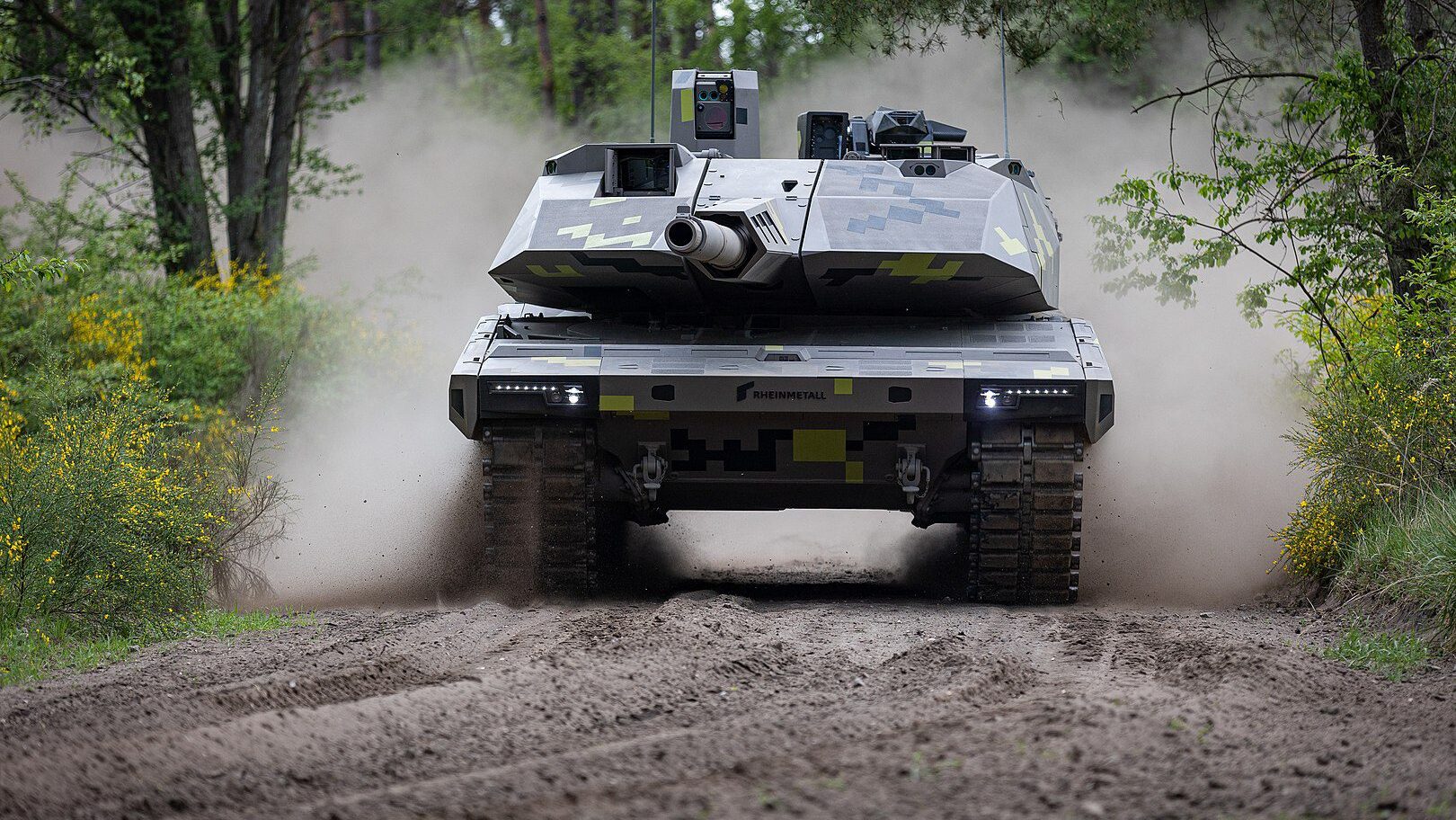
The German Rheinmetall’s next-generation Panther tank, which the company is planning to also produce in Ukraine in the future.
Photo: Rheinmetall Defence – CC BY-SA 4.0
Once known as the “breadbasket of Europe,” Ukraine is now eyeing a cooler, and more profitable, title.
In an interview with Politico published on Monday, October 23rd, the Ukrainian Minister for Strategic Industries, Oleksandr Kamyshin, argued that Western countries need to ramp up weapons production as close to the frontlines as possible, and that—with the right investors—Ukraine could become the epicenter of Europe’s emerging defense industry.
On Monday, Kamyshin traveled to Berlin along with Ukrainian Prime Minister Denys Shmyhal to lobby German defense contractors into signing joint ventures in Ukraine. One such partnership—the first of many, Kyiv hopes—between the German Rheinmetall and the Ukrainian Ukroboronprom will be announced later on Tuesday by Chancellor Scholz and OM Shmyhal at the German-Ukrainian Business Forum.
According to Kamyshin, Europe is not producing nearly enough weapons to be prepared for possible future conflicts, while Ukraine consumes more than it could ever be supplied from abroad. “If you get together all the worldwide capacities for weapons production, for ammunition production, that will not be enough for this war,” the minister said, noting the 1,000 km long active frontline.
And whenever interests converge like this, it means time for big business. Especially after another high-intensity front opened in the Middle East, with thousands of missiles fired daily, and Western powers already questioning whether they can sustain military aid to two allies at the same time. Not to mention the very palpable risk of escalation.
For Kyiv, all this means that arms manufacturing will likely remain one of the world’s most lucrative industries for a long time. “What happens is Israel now shows and proves that the defense industry globally is a destination for investments for decades,” Kamyshin pointed out, adding that Russia will not stop being a threat to Europe either.
Ever since the Russian invasion of Ukraine, the country received endless supplies of military aid from the EU institutions and 45 individual countries, worth nearly €238 billion together with the humanitarian and financial support packages.
In the last few months, however, Kyiv must have felt the flow was slowly drying out, so it changed its strategy, aiming to ramp up domestic production instead, hoping to also help establish the country as a large-scale arms exporter in the long run.
The future’s Ukrainian defense industry will focus on armored vehicles, air defense systems, drones, and ammunition. The country needs at least 1.5 million artillery shells a year to continue the war against Russia, Kamyshin said, a target that’s impossible to reach without domestic production.
All that’s needed is the right investors. As President Zelensky said recently, Kyiv “is ready to offer special conditions to companies willing to develop defense production” in Ukraine. Both German and French companies are likely to take on the offer, with Rheinmetall being the most eager, already planning to produce some of its next-generation Panther tanks in the country.
Tuesday’s partnership, however, will mainly focus on maintenance. “German companies are looking to start local MRO [maintenance, repairs, and operations] of weapons they sent to Ukraine,” Kamyshin said but added that the next stage (assembly and manufacturing) will be the “logical development of relations” between Berlin and Kyiv.
